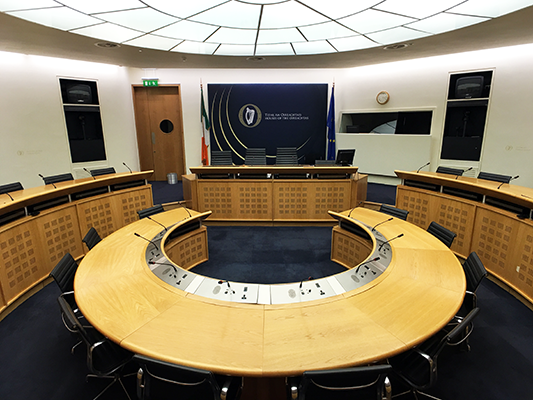
The risks posed by legislating for ‘assisted dying’ are “enormous”, according to a consultant in palliative care.
Commenting on the Oireachtas Committee on Assisted Dying’s recommendation to legalise assisted suicide and euthanasia in Ireland, Dr Miriam Colleran, said that she was “surprised” that the committee had dramatically deviated from the analysis of other European counterparts. “We’re surprised that the majority of committee members have taken such a different opinion to the Danish Ethics Committee which recently published a report compiled by 16 of 17 members that safeguards could not be introduced to make assisted dying, euthanasia and/or assisted suicide safe.”
She added: “The evidence shows that people seek assisted dying in particular because of feelings of burden,” she said.
“A compassionate society gives supports and is also aware of risks. The risk with assisted dying is the inappropriate death of a person. That’s an enormous risk. We are concerned about people feeling pressurised overtly, subtly or from within themselves to avail of assisted dying, euthanasia or assisted suicide”.

The confidentiality of confession is endangered by Hong Kong’s proposed new National Security Law, imposed by Beijing, according to 16 international experts on religious freedom.
“The new law could force a priest to disclose what is said in confession against his will and conscience and in complete violation of privacy,” they write in a statement published by Hong Kong watch. This would be a clear violation of Article 18 of the Universal Declaration of Human Rights.
The bill presented to Hong Kong’s parliament this month includes up to 14 years in prison for anyone who knows that another person has committed treason and fails to report it to the authorities within a reasonable time.
The signatories urge the international community, and religious leaders to stand up for religious freedom in Hong Kong.
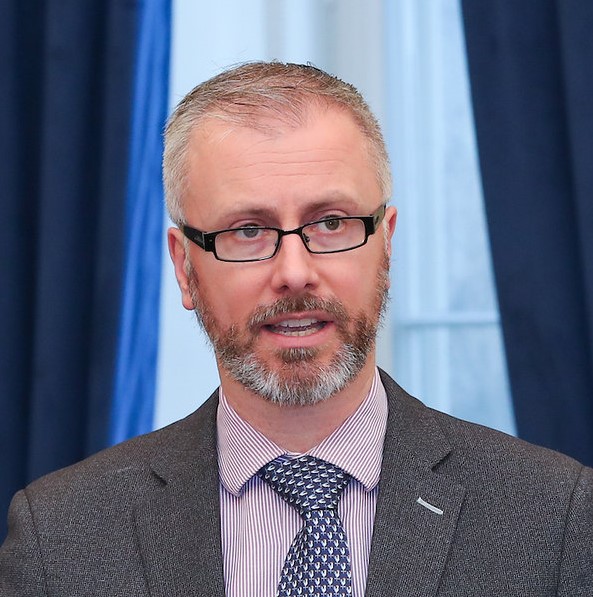
A Ministerial briefing note released to Gript Media under freedom of information legislation states that the wording of the comprehensively defeated Article 41.2 “Care” amendment to the Constitution was designed to avoid placing into the Constitution “a concrete and mandatory obligation to provide support.”
The release of the Department of Finance records prompted No campaigner Senator Michael McDowell to accuse the Coalition of having misled voters.
Ministers had also insisted there were no taxation or immigration implications. But files showed officials grappling with tax issues and legal advice that said greater weight would be given to non-marital family rights “in childcare, immigration and social welfare”.
Mr McDowell said Government spokespersons “consistently misrepresented the substance of the legal advice that they were receiving from the AG and elsewhere [including apparently outside counsel]”.
“They attempted to minimise or deny any practical implications for succession law, taxation law, immigration law, welfare law and childcare in a manner that the documentation proves was misleading.”
Mr O’Gorman’s spokesman said: “The Minister rejects that assertion.”
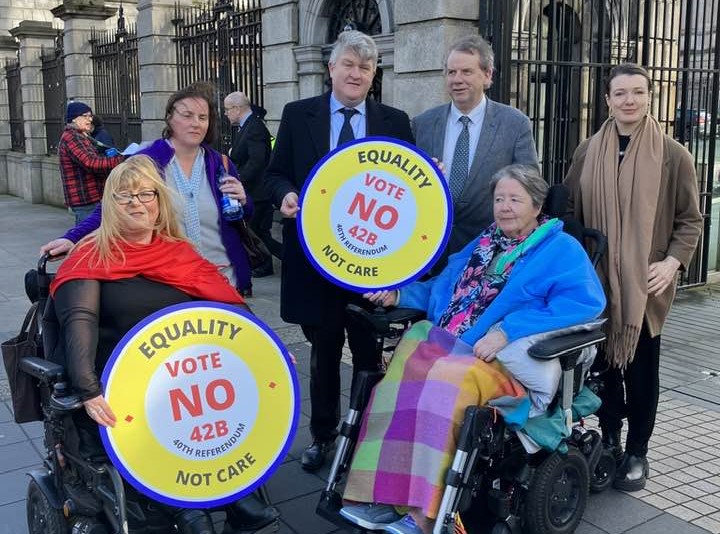
Non-Governmental Organisations (NGOs) must “listen hard” to those they represent, leading voices of the No campaign in last week’s referendum on care have said.
NGOs advocating Yes-Yes votes faced criticism following the overwhelming rejection of the family and care referendums last week. There have been suggestions Oireachtas members will review Government funding of the sector.
The Family Carers Ireland (FCI) organisation, which describes itself as representing “family and young carers across the country” is one of those who has faced a backlash.
The Equality Not Care (ENC) group, founded to campaign against the care referendum, this week called for the “immediate resignation” of the “leadership” of FCI. Michael O’Dowd, a carer and member of ENC, said the FCI statement “felt like gaslighting and that they were relighting the referendum”.
Asked if there was a future for FCI, he said: “There has to be. But the board has to look at themselves … They are voluntary and there’s no doubting their commitment but they need to listen hard to carers and not assume they know best.”

There is no clear distinction between young people who receive sex education at school and those who don’t when it comes to consuming pornography, new research by the Economic and Social Research Institute (ESRI) has found.
While the authors recommend more Social Personal and Health Education (SHPE), which incorporates sex education, they report that “there is no strong relationship between the provision of sex education at school and pornography use”.
This is in stark contrast with other factors which reveal significant differences.
According to the study, 64 per cent of 20-year-old men watch porn, while only 13 per cent of women that age reported use, a ratio of five to one, with different factors being linked to pornography use between the two cohorts.
Men from more advantaged backgrounds are more likely to use pornography, the report claims, and the pattern is not explained by their greater use of the internet in general. By contrast, there is little variation on usage by social background for women.
Pornography use was also lower among those with a religious affiliation and where there was greater parental monitoring in adolescence – of internet use for men and not spending time home alone for women.
Men who access pornography are said to be less satisfied with their lives, have more depressive symptoms and a poorer self-image.
Among both women and men there are higher levels of aggression for users.
They are also likely to cope with stress by drinking alcohol or by drug-taking, or taking to their bed.
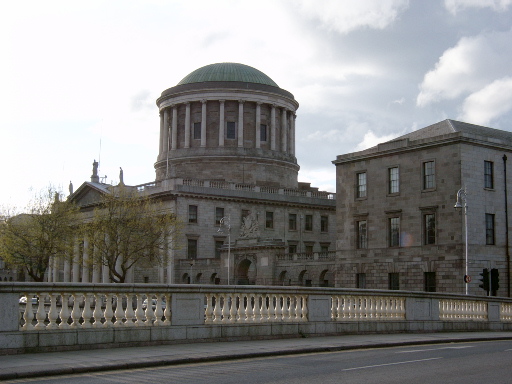
A significant appeal over the refusal of the maximum carers allowance to a mother caring full-time at home for her profoundly disabled son is set to proceed before the Supreme Court next month.
The appeal raises issues described by the court as of “systemic importance”.
The issues include the State’s obligations, if any, to home-based carers under article 41.2, which endeavour to protect mothers from being obliged by economic necessity to engage in labour to the neglect of their duties within the home.
The mother at the centre of the Supreme Court appeal cares full-time at home for her son.
In High Court proceedings the woman argued she is entitled to the maximum carer’s allowance despite having a spouse who earns an income.
She claimed the failure to do so breached her constitutional rights, including to equal treatment and under article 41.2 to have her work in the home recognised and supported.

The No side in the family and care referendums accused Ministers of using interest groups to fight a proxy Yes case for constitutional change.
Senator Michael McDowell and Aontú leader Peadar Tóibín said the lack of independent scrutiny raised questions about the McKenna ruling of the Supreme Court, which bans the spending of public money.
The gap emerged when the Standards in Public Office Commission and the new Electoral Commission said they had no power to examine whether non-government organisations (NGOs) comply with the Supreme Court ruling.
The ethics watchdog said: “While the Standards in Public Office Commission has a role under the Electoral Act 1997 in regard to third parties receiving donations for political purposes, including for a referendum campaign, it has no role concerning the expenditure of public monies by non-governmental organisations in the circumstances to which you refer.”
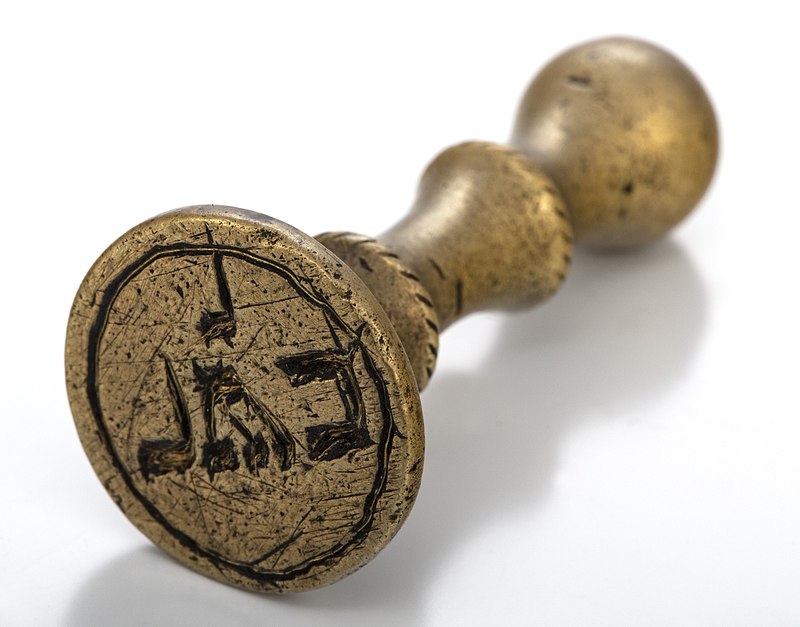
Canadian government regulations are endangering the ability of the Jewish community to produce kosher meat, leading kosher certifiers have said in a joint letter. Kosher meat is a requirement of Jewish religious law and limiting its availability is being seen as an attack on religious freedom that also affects Muslims.
The regulations on kosher and halal slaughter, according to sources familiar with the process, require that a significant number of 18 indicators be met to be certain that the animal is in an irreversible unconscious state in which it experiences no pain.
“Since these new guidelines have gone into effect, the amount of kosher meat produced in Canada has decreased dramatically,” said various Jewish groups. The community has been trying to temporarily supplement this shortfall with imported kosher meat, but this situation is not viable over the long term.”
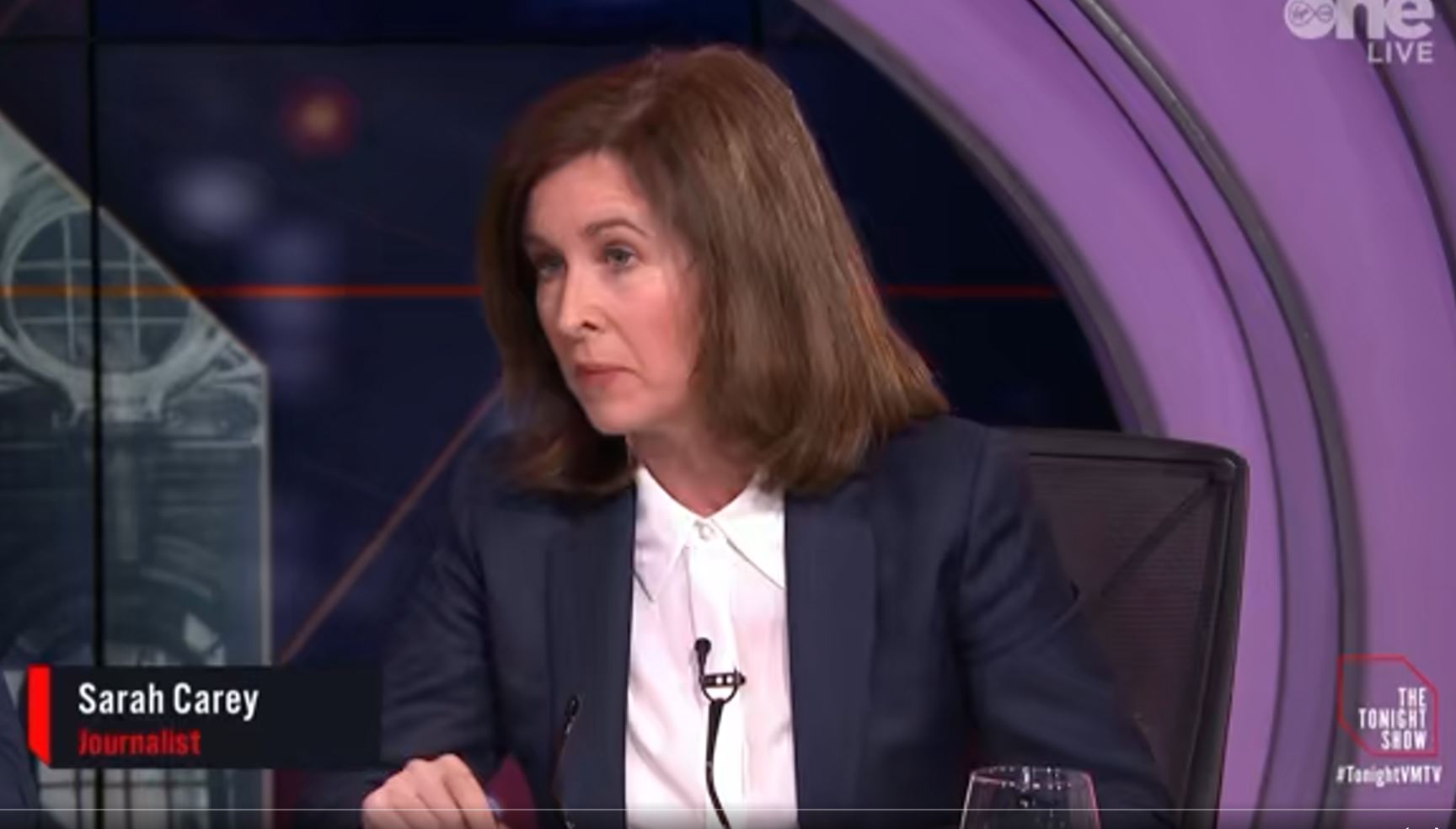
The huge support for retaining the mention of mothers in the Constitution has been almost completely excluded from the post-referendum analysis according to one prominent journalist.
Speaking on the Tonight Show, Virgin Media 1, Sarah Carey said the people who voted against the referendums, especially the one that would have deleted the mention of mothers, “were not members of the far-right, were not confused, were not misinformed”.
“So many mothers contacted me and wrote to me about that aspect which I addressed in one of my columns. It has been almost completely excluded from the analysis. And Maria Steen who took on the Tánaiste and beat him in that debate [on RTE] wasn’t interviewed by any mainstream media on Saturday, so I had to watch an interview with her on the Gript Media platform”.
She continued: “…the aspect of mothers is very important. . . . This is a text I got from a cousin of mine who sent it to me on Saturday, and she said: ‘my whole circle of friends, work colleagues, facebook friends, who are all mothers and all ends of the social structure of society were most annoyed at the mother component and I think that has been excluded far too much from the debate’”.
The Irish Independent columnist added: “I was at a business networking meeting this morning for women, and professional women were saying to me there, ‘Of course I voted “no”’. One woman said to me ‘if it wasn’t in the Constitution, I’d be fighting to put it in”.
She concluded: “Mothers are exhausted. They are exhausted working. They are exhausted looking after their children. They are exhausted keeping up to a standard they can’t meet. And the National Women’s Council of Ireland does not represent them”.

The HSE recently recruited Dr Karl Neff to create a new model of care for children suffering with gender dysphoria.
Asked if the new model will follow Wpath guidelines, the HSE said: “This will be informed by the best evidence-based clinical care for individuals who express gender incongruence or dysphoria and emerging and evolving international evidence will be reviewed as part of this work.
“There is no requirement for the outcome of this work to be aligned with the approach of any particular organisation.”
Last Tuesday, leaked internal forum messages from Wpath included a post in which one doctor appeared to describe how a colleague developed liver cancer after eight to 10 years of taking hormones. Other posts showed doctors discussing how to provide treatment to patients with serious mental health issues.
A video of an internal Wpath workshop showed clinicians admitting they struggled to get “informed consent” from patients as young as nine who wanted hormone treatments as they did not understand how this could harm their future fertility. Wpath has been accused of being over-influenced by trans-activists.